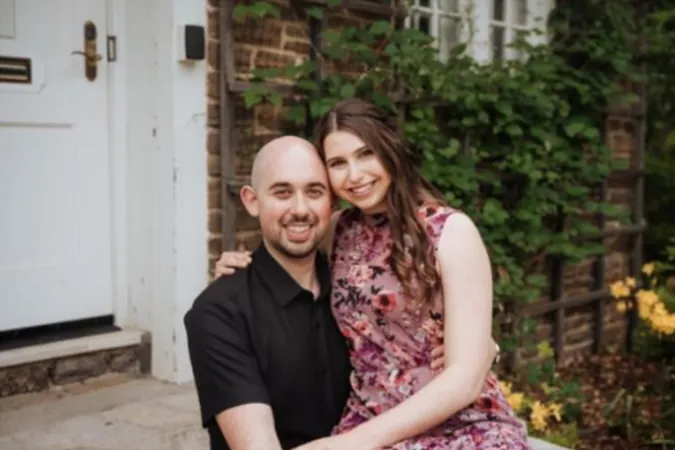
The Crucial Guide to Compassionate Communication: Words Doctors Should Never Say to Patients
2024-11-05
Author: Olivia
In the realm of healthcare, the emotional suffering experienced by seriously ill patients and their families cannot be overstated. The impact of a single word can lead to heightened fear, feelings of disempowerment, and may undermine the vital process of shared decision-making. A recent collaborative research effort, prominently featuring Dr. Leonard Berry, a Distinguished Professor of Marketing at Texas A&M University, shines a light on the importance of "compassionate communication" in clinical settings. This research identifies specific phrases dubbed "never words" that healthcare providers must avoid at all costs.
According to the study published in *Mayo Clinic Proceedings*, even amid significant advancements in the treatment of serious ailments such as cancer, heart failure, and end-stage pulmonary disease, the inherent experience of fear remains unchanged for patients. Dr. Berry and his co-authors emphasize that discussions surrounding complex treatments can be daunting, and clinicians often default to harsh or insensitive language without recognizing its detrimental effects.
Imagine being in a consultation where your doctor, instead of using empathetic language, employs phrases that could induce further anxiety. Dr. Berry notes that patients are highly receptive to their doctor's words during times of crisis, interpreting even the slightest insensitivity as a personal affront. "Serious illness isn't merely a physical burden; it is an emotional one as well," he explains, highlighting the dual nature of patient suffering.
The 7 Deadly "Never Words"
The researchers compiled a list of phrases that healthcare professionals should avoid using, as they can severely hinder open communication and exacerbate patients' fears. Here are some of the most damaging "never words": 1. "There is nothing else we can do." 2. "She will not get better." 3. "Withdrawing care." 4. "Circling the drain." 5. "Do you want us to do everything?" 6. "Fight" or "battle." 7. "I don’t know why you waited so long to come in." Additionally, a targeted study regarding cancer patients revealed that certain phrases were ranked particularly harmful: - "Let's not worry about that now." - "You are lucky it's only stage 2." - "You failed chemo." The implications of such language are profound. For instance, dismissing a patient's concerns with "Let's not worry about that now" can invalidate their feelings, while stating "You failed chemo" shifts the blame onto patients for their treatment experiences.
Strategies for Sensitive Communication
To foster a healing environment, healthcare providers are encouraged to adopt a more thoughtful approach. Instead of using "never words," which close off dialogue, clinicians should nurture patient engagement. Starting conversations with open-ended questions like, “What concerns do you have?” invites a more candid exchange.
For instance, instead of declaring, "She will not get better," a more compassionate alternative could be, "I'm worried she may not improve." This slight rephrasing expresses concern without placing a harsh prognosis on the patient.
Moreover, language associated with struggle, such as "fight" or "battle," can evoke feelings of inadequacy in patients. A more supportive phrase would be, "We will navigate this tough disease together," which can reinforce the message that patients are not alone in their journey.
Raising Awareness Through Education
The authors of the study advocate for incorporating communication training into medical education to ensure that future healthcare providers are equipped with the skills to communicate effectively and compassionately. By training medical students on the emotional dimensions of doctor-patient interactions, we can foster a culture of holistic care that prioritizes patient comfort alongside clinical expertise.
Mentoring is also crucial; experienced physicians can guide their newer counterparts on the language to embrace and the phrases to abandon. This mentorship not only enhances individual communication styles but also paves the way for a more empathetic healthcare system.
In conclusion, the way healthcare professionals communicate can dramatically influence the emotional well-being of patients facing serious illnesses. By recognizing and eliminating harmful language, medical practitioners can empower patients and create a supportive environment that fosters hope and informed decision-making. It’s a small shift in language that has the potential for monumental impact on patient care.









 Brasil (PT)
Brasil (PT)
 Canada (EN)
Canada (EN)
 Chile (ES)
Chile (ES)
 España (ES)
España (ES)
 France (FR)
France (FR)
 Hong Kong (EN)
Hong Kong (EN)
 Italia (IT)
Italia (IT)
 日本 (JA)
日本 (JA)
 Magyarország (HU)
Magyarország (HU)
 Norge (NO)
Norge (NO)
 Polska (PL)
Polska (PL)
 Schweiz (DE)
Schweiz (DE)
 Singapore (EN)
Singapore (EN)
 Sverige (SV)
Sverige (SV)
 Suomi (FI)
Suomi (FI)
 Türkiye (TR)
Türkiye (TR)